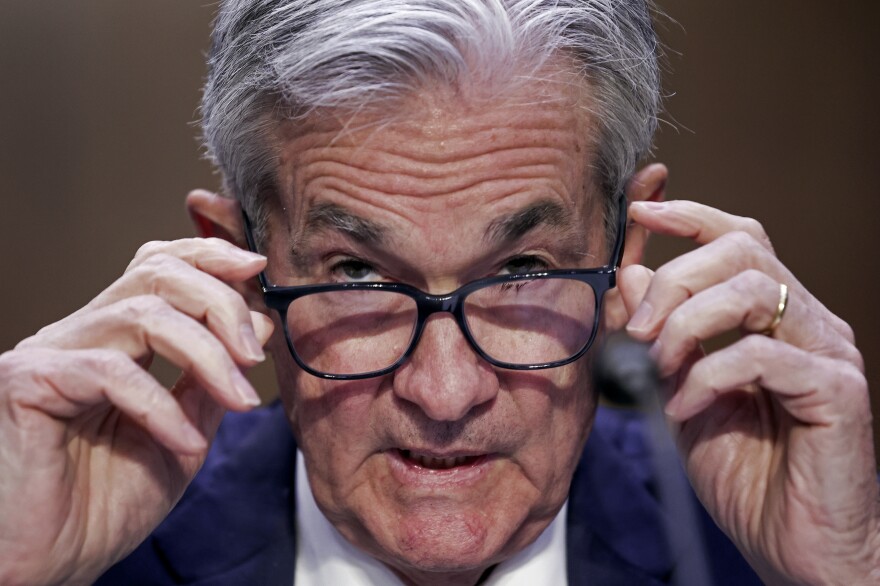Federal Reserve chairman Jerome Powell says the central bank is committed to regaining control over inflation, even as he acknowledged the Fed has little power to address its most visible symptoms at the gas pump or the supermarket.
Powell addressed the Senate Banking Committee Wednesday, a week after the Fed ordered the largest interest rate increase since 1994. The central bank is under growing pressure to combat inflation, which hit a four-decade high of 8.6% in May.
"We need to get inflation back down to 2%," Powell told lawmakers. "We're using our tools to do that. And the public should believe that we will get inflation back down to 2% over time."
Sen. Elizabeth Warren, D-Mass., cautioned that an abrupt increase in borrowing costs could produce a surge in layoffs, while doing little to untangle supply shocks that have driven up the price of gasoline and groceries.
"You know what's worse than high inflation and low unemployment?" Warren said. "It's high inflation and a recession with millions of people out of work. I hope you'll reconsider that, before you drive this economy off a cliff."
Powell stressed the economy is well-positioned to withstand higher interest rates, although he acknowledged that the war in Ukraine and lingering supply-chain problems increase the risk of an economic slowdown.
"It's certainly a possibility," Powell said. "It's not our intended outcome at all but it's certainly a possibility."
"We're not trying to provoke — and don't think that we will need to provoke — a recession," he added. "But we do think it's absolutely essential that we restore price stability, really for the benefit of the labor market as much as anything else."
A growing number of forecasters now see storm clouds on the horizon. Economists surveyed by the Wall Street Journal put the odds of a recession in the next 12 months at 44%, up from 28% in April.
Powell argued that predicting recessions is notoriously difficult, but added that he doesn't see the risk as particularly high.
"The U.S. economy for now is strong. Spending is strong. Consumers are in good shape. Businesses are in good shape," Powell said. "Monetary policy is famously a blunt tool. And there's risk that weaker outcomes are certainly possible. But they're not our intent."
After keeping interest rates near zero for the first two years of the pandemic, the Fed is now moving aggressively to increase borrowing costs in a bid to tamp down demand. The Fed's benchmark rate has jumped to 1.6%, and additional rate hikes are expected in the coming months.
Mortgage rates have climbed sharply in anticipation of the Fed's moves, and that's beginning to weigh on both home sales and home construction.
Some Republicans on the committee faulted the Fed for waiting too long to crack down on inflation, and blamed the $1.9 trillion dollar relief bill passed by Congressional Democrats last year for fueling consumer demand.
"The Federal Reserve and this administration failed the American people by not heeding these warnings a year ago, and not acting sooner to address it," said Sen. Richard Shelby, R-Ala.
Powell and other officials have admitted that they initially misjudged both the severity and the staying power of inflation. But the Fed chairman insists he's determined to bring prices under control.
"We have the tools and the resolve and hopefully the judgement to accomplish that task," Powell said.
Copyright 2022 NPR. To see more, visit https://www.npr.org.



